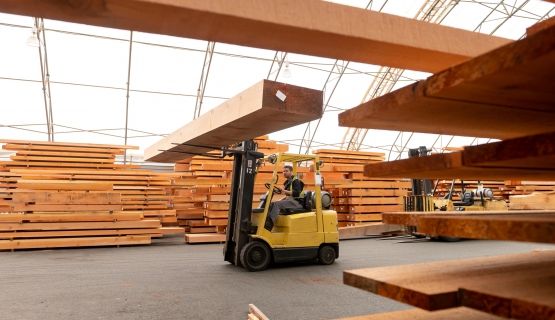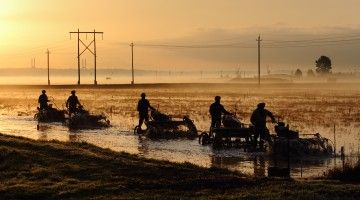Workers' compensation and benefits policy
Workers' compensation is a form of insurance providing wage replacement and medical benefits to workers injured in the course of their employment. Eligibility for, and awarding of, benefits to injured workers are determined by workers’ compensation boards, which are funded through employer premiums. IWH research explores trends in compensation benefits, including benefit adequacy and equity, as well as the effects of compensation policy design on injury and illness prevention.
Featured

Research Highlights
Severe pain, not pressure to return to work or lack of accommodation offer, linked to opioid use post-injury
An IWH study found that among a group of injured workers in Ontario, those who experienced severe pain were more likely to use opioids than those who had no or only mild pain.
Published: February 12, 2025

Impact case study
Following reports by IWH and others, B.C. amends the law to strengthen protections against claim suppression
After an IWH study filled a research gap on claim suppression in B.C. and helped make the case for change, the province amended legislation to strengthen protections against the practice.
Published: July 6, 2023

At Work article
Claim suppression study in B.C. finds under-claiming of work injury to be common
To what extent are injured workers in British Columbia discouraged from from reporting their lost-time work-related injuries or illnesses? An IWH research team was commissioned to find out the extent of claim suppression, and the circumstances that lead to suppressed claims.
Published: June 2021

Issue Briefing
Nature and extent of claim suppression in B.C.’s workers’ compensation system
The Institute for Work & Health collaborated with Prism Economics and Analysis to conduct a study for WorkSafeBC on claim suppression in British Columbia. This Issue Briefing summarizes the findings of this study and compares them with the findings of previous Institute studies on claim suppression in Manitoba and Ontario, as well as with the findings of other research in Canada.
Published: May 2021
Journal article
Journal article
The association between case manager interactions and serious mental illness following a physical workplace injury or illness: a cross-sectional analysis of workers' compensation claimants Ontario
Published: Journal of Occupational Rehabilitation, April 2021
Project
Project
Understanding the injury experience of Ontario small businesses through workers’ compensation claims data
By analyzing Ontario's workers’ compensation data, an IWH team is producing injury risk profiles by sector and workplace size, thus enhancing our understanding of risk in small businesses.
Status: Ongoing
IWH Speaker Series
IWH Speaker Series
Ontario Life After Workplace Injury Study: What we've learned so far
The Ontario Life After Workplace Injury Study (OLAWIS) is looking at the long-term health and labour market outcomes of workers disabled by work injury or illness after they are no longer receiving benefits or services from the Workplace Safety and Insurance Board. As part of the study, over 1,130 eligible claimants were interviewed at 18 months post-injury and asked about a wide range of factors, including their work status and income, physical and mental health, case manager and health-care provider interactions, and employer return-to-work support. In this presentation, Dr. Cameron Mustard shares what the researchers have learned so far about this group of injured workers.
Published: February 2021
Journal article
Journal article
Do differences in work disability duration by interjurisdictional claim status vary by industry and jurisdictional context?
Published: Occupational & Environmental Medicine, January 2021
Project
Project
Ontario Life After Work Injury Study: Cannabis use and long-term recovery and return-to-work outcomes among Ontario injured workers
An IWH study is helping us understand how workers with work-related injuries and illnesses use cannabis and how that use is related to their recovery and return to work.
Status: Ongoing
Journal article
Journal article
Estimating time to reinjury among Washington State injured workers by degree of permanent impairment: using state wage data to adjust for time at risk
Published: American Journal of Industrial Medicine, January 2021
Project report
Project report
Estimates of the nature and extent of claim suppression in British Columbia’s workers' compensation system
The Institute of Work & Health collaborated with Prism Economics and Analysis on a study, funded by WorkSafeBC, to estimate the nature and extent of claim suppression in the workers’ compensation system of British Columbia.
Published: December 2020

At Work article
COVID-19: Challenges and opportunities in OHS and social security highlighted at global session
In early October, the global community of OHS and social security policy-makers gathered virtually to discuss challenges and lessons learned as countries respond to the COVID-19 pandemic emergency. Despite the diversity of their experiences, many common themes emerged.
Published: November 2020